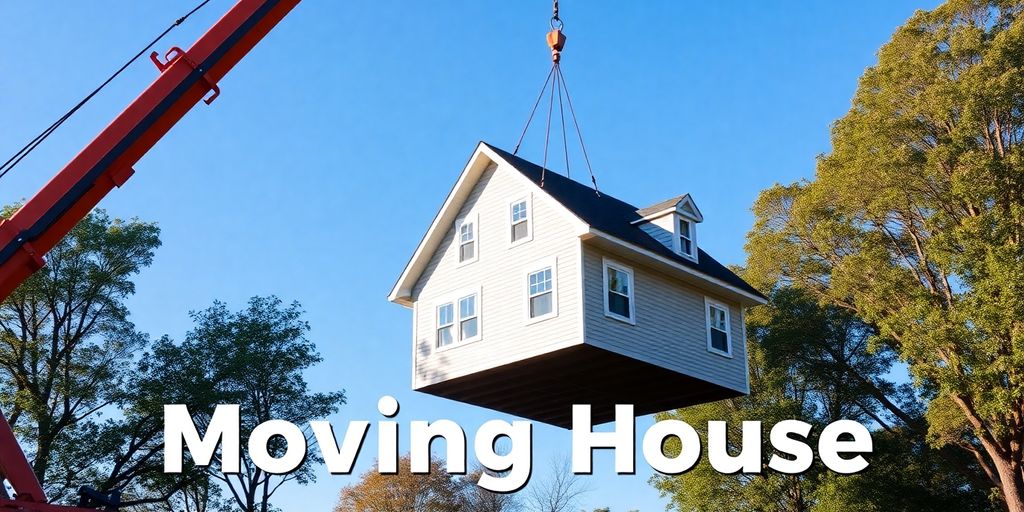Cost of buying and selling a house calculator can feel like an emotional rollercoaster. It can all add quickly and become overwhelming. That is where a cost calculator proves to be useful.
It helps you see the bigger picture and plan your budget better. But, it’s important to know what enter these calculations and how they can affect your finances.
 Selling a house can often feel like:
Selling a house can often feel like:
When you’re buying or selling a house, financial advisors can be a real asset. They help you understand:
Understanding the Costs Involved in Buying a House
Stamp Duty and Legal Fees
When purchasing a house in the UK, one of the initial considerations Stamp Duty. This is a tax you pay on properties over a certain price. The amount varies depending on the property’s value and whether you’re a first-time buyer. Is crucial to budget for this, as it can be a significant amount. Legal fees are another cost. You’ll need a solicitor or conveyancer to handle the legal aspects of your purchase.Survey and Valuation Costs
Surveys and valuations are essential for this. A survey checks the property’s condition, while a valuation confirms its worth. Choosing the right one depends on the property’s age and condition.Mortgage Arrangement Fees
Obtaining a mortgage involves more than just considering interest rates; there are also fees take into account. Lenders charge arrangement fees for the setup of your mortgage. These costs may sometimes be to your mortgage. Be aware that you will incur interest on them if you choose this option. Is essential to compare various mortgage deals by taking account both:- rates
- and fees determine the most suitable option for your circumstances.
Understanding and preparing for these additional costs can help you manage your budget effectively.
Breaking Down the Expenses of Selling a House
 Selling a house can often feel like:
Selling a house can often feel like:
- a whirlwind of tasks
- and costs. Is more than just finding a buyer and signing papers.
Estate Agent Fees
When need to selling your home, estate agent fees are usually one of the biggest costs. These fees can range from:- 1% to 3% of the final sale price. Is important to shop around and negotiate these fees where possible. Some sellers opt for online agents, which might offer lower fees, but it’s crucial to weigh the pros and cons.
Conveyancing Costs
Legal fees, often referred to as conveyancing costs. These are the charges for the legal work involved in transferring ownership of the property. They can vary depending on the complexity of the sale but typically range from £500 to £1,500.Home Staging and Repairs
To make your property appealing to potential buyers, you might need to invest in home staging and repairs. This can include anything from a fresh coat of paint to fixing leaky taps or even more significant renovations. While these costs can add , prepare your home help in achieving a higher sale price.Selling a house involves several costs that can quickly add . Understanding these expenses and planning ahead can help you manage your budget effectively.In addition to these main expenses, don’t forget about:
- removal costs by removal companies
- and any early repayment charges on your mortgage. Using a moving cost calculator can help you estimate these costs and prepare accordingly.
How the Cost of Buying and Selling a House Calculator Works
Inputting Your Property Details
When using a cost of buying and selling a house calculator UK, the first step is inputting your property details. This usually involves entering information such as the property’s location, size, energy efficient and type. You might also need to provide the current market value and any outstanding mortgage. These details help the calculator estimate:- costs accurately, whether you’re using a total cost of buying a house calculator UK or a home selling calculator.
Understanding the Calculations
Once you’ve entered your property details, the calculator uses this data to crunch numbers and give you an estimate. Is important to understand what these calculations mean. Typically, the calculator will break down the costs into categories like:- legal fees,
- estate agent fees,
- and any taxes like stamp duty. Knowing these categories can help you plan better, especially:
- Solicitor: Solicitor Costs when Moving House is another fee.
Interpreting the Results in selling house calculator
After the calculations, you’ll get a summary of the costs involved. This might include a selling house calculator overview or a cost of selling a house calculator UK breakdown. Interpreting these results is key. Look for areas where you might save money or where costs seem higher than expected. This insight is particularly useful if you’re using a selling and buying a house at the same time calculator.Using a selling home fees calculator can simplify the process. but always double-check the results with a professional to ensure you’re not missing any hidden fees or costs.
Factors Influencing the Cost of Buying and Selling a House
Location and Market Conditions
When considering buying or selling a house, location is of paramount importance. Houses in popular areas often cost more, and the demand can push prices up. Market conditions also play a role; during a housing boom, prices can skyrocket, whereas in a slump, they might drop.Property Size and Type
The size and type of your property can hugely impact costs. Larger homes or those with unique features might require more money for maintenance or renovations. Flats and smaller houses might be cheaper to maintain but can be harder to sell in certain areas.Timing and Economic Factors
Timing your move can significantly impact your outcome. Selling during a buyer’s market may result in receiving less money for your home. Economic factors like interest rates or inflation can also affect your expenses.Understanding these factors can help you make smarter decisions when buying and selling a property.
Tips for Minimising the Cost of Buying and Selling a House
Negotiating Fees and Costs
When you’re in the process of selling your house or buying a new one, it’s important to remember that many fees are negotiable. Whether it’s the estate agent’s commission or the costs associated with conveyancing, there’s often room to reduce these expenses. Start by comparing quotes from different service providers and use these as leverage to negotiate better terms.Choosing the Right Time to Buy or Sell
Timing can significantly impact the costs involved in moving house. The property market fluctuates, and prices can vary widely depending on the time of year. Typically, spring and early autumn are busy times in the property market, which might drive prices up. If your timeline is flexible, consider selling your property when the market is less competitive to potentially save money.Utilising Online Tools and Resources
In today’s digital age, using an online estate agent can be a cost-effective alternative to traditional methods. These platforms often offer lower fees and provide useful tools to help you sell my house efficiently. Additionally, online calculators can help you get a clearer picture of potential costs, allowing you to budget more effectively. Make sure to explore these resources to minimise unnecessary expenses.Common Mistakes to Avoid When Using a Cost Calculator
Overlooking Hidden Costs
When using a cost calculator for buying or selling a house, it’s easy to miss some of the less obvious expenses. Things like maintenance costs, moving expenses, or unexpected repairs can sneak up on you. These hidden costs can add , throwing off your budget. Is always a good idea to make a comprehensive list of potential expenses before relying solely on the calculator.Interpreting wrongfully selling calculator Results
Cost calculators are useful tools, but they are without flaws. Sometimes, people take the results as gospel truth without considering the assumptions behind them. Calculators often use average values, which might not apply to your specific situation. Is important to review the results critically and understand that they are estimates, not exact figures.Ignoring Market Trends
The housing market is always changing, and these shifts can impact buying and selling costs significantly. Relying on a calculator without considering current market trends can lead to inaccurate budgeting. Keep an eye on:- interest rates,
- property demand,
- and regional price changes to ensure your calculations reflect the current market conditions.
Is important to remember that a cost calculator serves as a guide, not a decision-maker. Always combine its insights with real-world knowledge and expert advice.
The Role of Professional Advice in selling house calculator
 Consulting with Financial Advisors
Consulting with Financial Advisors
When you’re buying or selling a house, financial advisors can be a real asset. They help you understand:
- the financial landscape
- and guide you through the complexities of budgeting for a new home or maximising profit from a sale. A good advisor will look at your overall financial picture, not just the immediate costs. They can help you understand mortgage options, tax implications, and even retirement planning if needed.
Working with Experienced Estate Agents
High street estate agent are not just there to show houses:- Their expertise in the local market can make a large difference in how much you spend or earn. They know the ins and outs of pricing, negotiation, and marketing properties.
Seeking Legal Guidance in selling calculator
Legal issues can trip up even the savviest buyers and sellers. That is where a solicitor orancer becomes essential. They handle all the legal paperwork and make sure everything complies with the law. From drafting contracts to dealing with title issues, having legal support ensures that your transaction is airtight. They can also advise on any legal obligations you might not be aware of, which can save you from costly mistakes later on. Professional guidance can make the process of buying or selling a house less stressful and more efficient.Conclusion
Buying or selling a house in the UK can be a bit of a rollercoaster, especially when discuss about the costs. Is not just about the principal amount of the house; there are so many other expenses to consider. From legal fees to stamp duty, and even the cost of moving itself, it all adds .FAQ(Frequently Asked Questions)
What is the main cost when buying a house?
The biggest cost when buying a house is usually the deposit, which is a percentage of the property’s price. Other costs include stamp duty, legal fees, and survey costs.
How can I reduce the cost of selling my house?
You can lower costs by negotiating:
- estate agent fees,
- doing minor repairs yourself,
- and comparing conveyancing quotes to find the best deal.
What does a cost calculator for buying and selling a house do?
A cost calculator helps you estimate the total expenses involved in:
- buying or selling a house by taking into account various fees and charges.
Why is stamp duty important when buying a house?
Stamp duty is a tax levied upon the purchase of a property. Is important because it can significantly increase the overall cost of purchasing a home.
Should I use a professional to help with buying or selling a house?
Yes, professionals like:
- estate agents
- and solicitors can provide valuable advice and help manage the process smoothly, ensuring all legal requirements are met.
Are there hidden costs when buying or selling a house?
Yes, there can be hidden costs such as moving expenses, repairs, and unexpected legal fees.

 Consulting with Financial Advisors
Consulting with Financial Advisors


